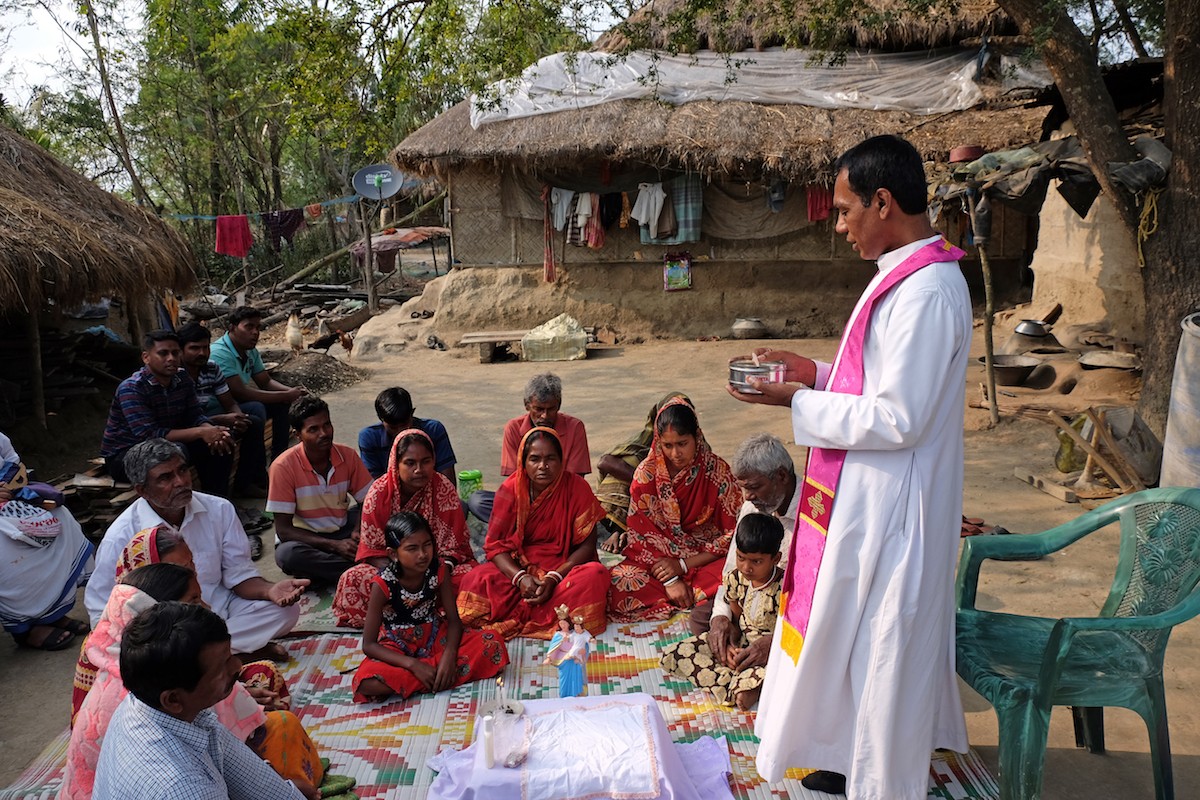Giving love is made much more difficult than receiving love, because loving demands a giving of the self.
Unlike the kind of love that we normally believe or feel we have in masquerading before others to actually acquire the pleasure we can derive from knowing them, true love seeks no returns.
True love tends to the one loved as the subject of its passion, not its object – a person worthy of unconditional dedication not for the lover’s sake, but solely for his or her own. Such authentic love is challenging because of the overriding temptation and ease of preferring the “gaining for the self” before the “gaining for others.” It is the weakness that must be overcome by the disciplining of its affections.
Loving is its own gift, for it is in our emptying that we make others full. Loving is its own paradox, for it is in our emptying that we ourselves are made full.
The Christ loved all of us dearly, not only with true love, but also with an immense love. He was on a mission of love and compassion to heal humanity of its bodily and spiritual maladies, offering wellness, mercy and hope, and striking the whips of justice in defiance against a social structure of oppression. It reached the peak of perfection in his ultimate act of love – offering his own life in sacrifice when human injustice demanded it, offering his own Body and Blood for our salvation in a mystical divine triumph of an eternal peace.
This singular sacrifice of our Lord being perfect and true, forever merited the grace of our Father God for all those who approach him through the sacrament of the Holy Eucharist. Not only is the sacrifice of our Eternal Priest on the altar a memorial of his Passion, but it is also the primary channel for the continuous and everlasting outpouring of these heavenly graces for all the faithful through the ages that came and will come.
Does it not boggle the mind to think that the blessing which can be received had we been there mourning on that dark afternoon on a lonely hilltop outside the walls of Jerusalem can now be received even daily – even virtually – when we attend Holy Mass?
Is it not amazing to think that this gift is so infinite, that all who do receive it will unfailingly have their satisfying fill? What can be more wonderful than believing in the God who would rather serve than being served upon?
Hence, the Christ is still on his eternal mission, strengthening us daily on our own missions to propagate his love and his message of truth with its fruits, an undiminishing access to the grace of God. Through the Spirit, he continues to teach us his word and to nourish us with the same Body and Blood of his sacrifice, fruits defying space and time, fruits bringing back life for our struggling souls so that we may remain faithful to our Father.
What love can be more immense than that?
In response, should we not try to love just as truly or immensely? Should we not try to listen and to deeply understand the teachings of our Lord, the Eternal Word of God? Should we not try to apply what we have learned from him at home or in our communities? Should we not nourish ourselves with the sacred Host, the warm kiss of the Beloved upon our lips? Should we not move forward, and to others who like us hungered for a genuine peace, give what we have received?
How neglectful of us when we are unsure of our love such that we ignore the wisdom of the Scriptures, refusing to open the Bible even if true love strongly recommends “just an hour a week.”
How disrespectful of us when we are unsure of our love such that we attend Holy Mass only out of mere respect or fulfillment of duties, such that we receive all that divine love contained in Holy Communion, without faith or fervor. How abusive of us when we are unsure of our love such that we remain indifferent and worse, instrumental to the diminution and deterioration of the human condition, striving to make ourselves happy and comfortable, while leaving in its wake the unfortunate fate of many others who will long remain unhappy and at-risk.
Are we not yet fed up with feeling the burdens of a false and treacherous love, and an elusive yet fragile peace? Is it not yet obvious that one leads to the other, that we are caught in a destructive vortex of our own making? Is it not yet clear that we still have another chance at love and life?
To respond with an insincere love for the Holy Eucharist, is to mirror our own insincere love for the victims of our demeaning structures and violent times. To deny the love of and for Jesus, is to deny the love of and for those whom the Spirit in a special way defends and protects. To rebel against Love is to deserve a perpetual death.
Brother Jess Matias is a professed brother of the Secular Franciscan Order. He serves as minister of the St. Pio of Pietrelcina Fraternity at St. Francis of Assisi Parish in Mandaluyong City, coordinator of the Padre Pio Prayer Groups of the Capuchins in the Philippines and prison counselor and catechist for the Bureau of Jail Management and Penology.
The views expressed in this article are the opinions of the author and do not necessarily reflect the editorial stance of LiCAS.news.
